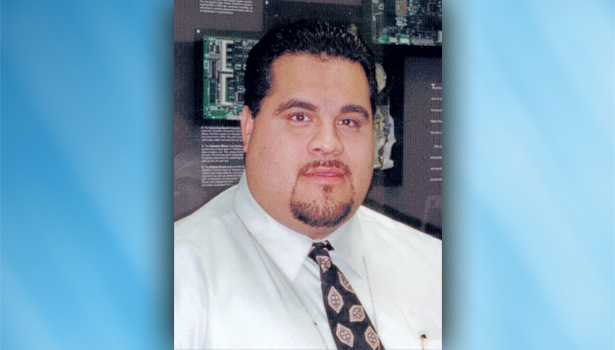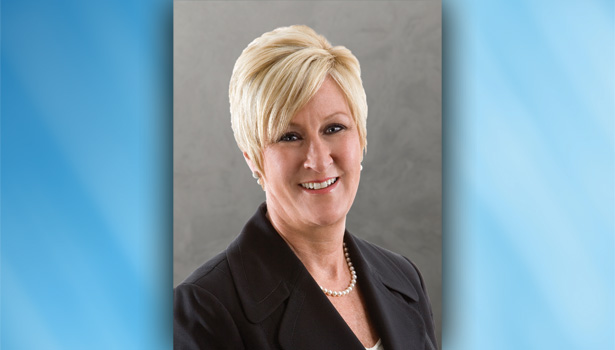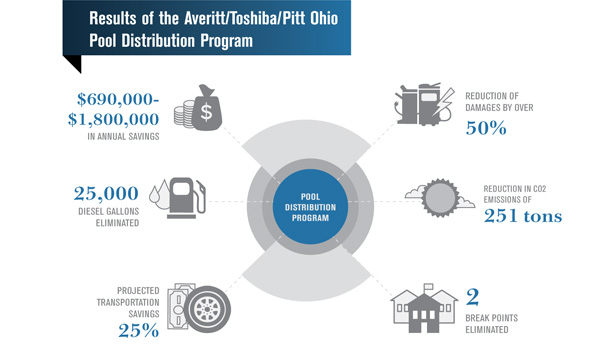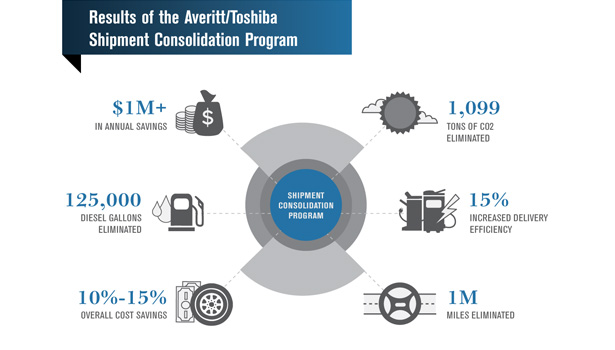Alliance Award: Toshiba - Networking with Friends
As seen in the January 2014 edition of World Trade
Toshiba America Business Solutions Inc. and Averitt Express Inc. had been working together in the Southeast for two decades with mutual success. As the two
companies describe the relationship, they often worked together on solutions, not just prices. As a result, the two were able to create more supply chain flexibility and savings for Toshiba. During a collaborative business session between Toshiba and Averitt, the discussion turned to problems Toshiba was having in other parts of its network.
 Al Garcia, transportation manager, Toshiba America Business Solutions |
“Our analytics indicated that LTL shipments to the Northeast had escalating damages, notes Al Garcia, transportation manager for Toshiba. “This was primarily due to the length of haul and touchpoints within the carrier network,” he explains.
“We were looking for a solution that would result in fewer damage claims,” continues Sue Wilson, VP of supply chain management for Toshiba. “We had found that the fewer the touchpoints, the less the potential for damage.”
“Averitt had a great track record within the Southeast,” Garcia says.
“We were using Averitt in one region of the country for LTL. Our meetings were very interactive and surrounded solution conversations, rather than just lowering a rate to get additional business,” Wilson adds. “A by-product of these meetings produced high-level solutions including a Shipment Consolidation and Pool Distribution program,” says Tony Allison, western regional VP, Averitt.
|
Sue Wilson, VP supply chain management, Toshiba America Business Solutions |
Averitt’s alliance with Pitt Ohio Express, through The Reliance Network (TRNet), gave the carrier a partner in the Northeast it could work with to develop a solution for Toshiba, and so Pitt Ohio was brought into the discussion.
Toshiba’s existing network was prone to multiple, same-day deliveries which could involve double, triple, and even quadruple handling. The long distances and multiple handlings were a major factor in the damage Toshiba business products suffered moving into the Northeast. Using less-than-truckload (LTL) services as a primary mode to fill dealer orders was not working.
“We tried different carriers and processes to correct it. We were not happy with our current results, so we entered into conversations with Pitt Ohio and Averitt regarding pooled freight,” Wilson recalls. “We have had success with multi-stop truckloads, and through this process, we learned it was the number of touchpoints that had to be reduced.”
“Through a recommendation from Averitt, Pitt Ohio began pool distribution discussions with Toshiba to streamline product movement into the Mid-Atlantic and Northeastern markets,” says Tom Cleve, enterprise solutions executive, Pitt Ohio. “We needed to develop a pool drop point which was centralized for Toshiba’s customer base and would also provide efficiencies for Pitt Ohio and Pitt Ohio Truckload powered by ECM Transport. We also needed to provide a high level of service and product integrity for Toshiba.”
|
Chart Source: Averitt Express Inc. |
“Within our TMS we have multiple warehouse drops resulting in several deliveries to the same destination. Averitt’s consolidated billing solved this problem. Pool distribution was a necessity based on our results from multi stop truckloads,” says Garcia “Systematically we had to ensure all partners were correctly integrated onto our TMS and in sync via EDI. Operationally our staff had to retool their procedures to load line-haul equipment and ensure a timely execution.”
Through multiple meetings with TRNet, which included Averitt and Pitt Ohio and Toshiba, Allison recalls, “We were able to develop the entire program along with initiating standard operating procedures (SOPs) for both Pool and Hybrid Pool programs.”
“Through these meetings,” says Wilson, “we were able to specifically pinpoint our key territories that needed to be addressed. We have SOP’s in place with several choices of how to move our freight.”
Garcia adds, “It was a collaborative effort between us and TRNet. These were projects that took multiple meetings to address all concerns. Having good data from our TMS to analyze was key to building these solid solutions.”
Pitt Ohio developed the pool distribution program (with line-haul included) and successfully made it work, says Cleve. “Averitt provided a TRNet solution to handle any overflow into the Mid Atlantic and Northeast markets.”
|
Chart Source: Averitt Express Inc. |
As the shipments enter the supply chain, Averitt routes them to be consolidated before delivery. Pool distribution is optimized with heavy and consistent volumes, so light days can potentially delay transit if there is not enough volume to fill a line-haul unit. The team overcame this problem by developing a hybrid pool solution. Under this scenario if a full load is not achieved, the product is moved through the TRNet network just as a regular shipment would through the LTL system. This option avoids delays and helps ensure line-haul units are not moved half full.
This solution resulted in a 15 percent overall cost savings and increased delivery efficiency. In addition to the cost savings, the solution reduced diesel fuel use by 125,000 gallons. This has the added environmental impact of a reduction of carbon dioxide by approximately 1,099 tons.
What about the original problem of damage? Not only did the pool distribution solution project a reduction of damages by over 50 percent, its projected transportation savings will be over 25 percent.
The collaborative process continues with the partners, and they are now looking at transloading opportunities at the port.



